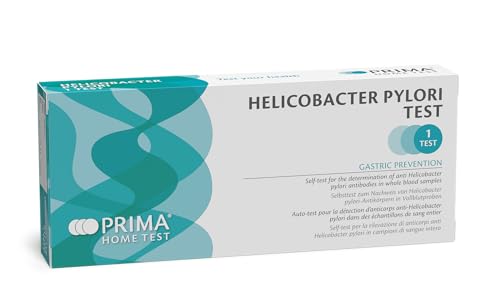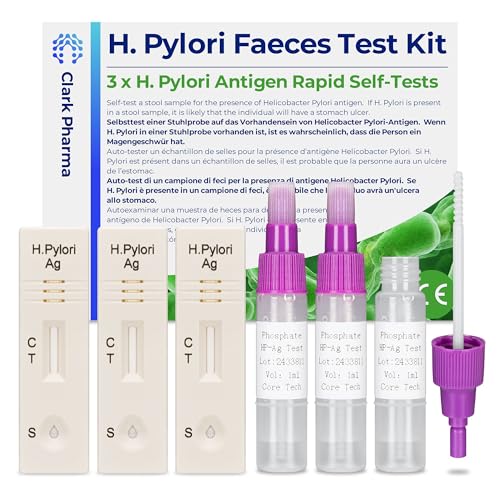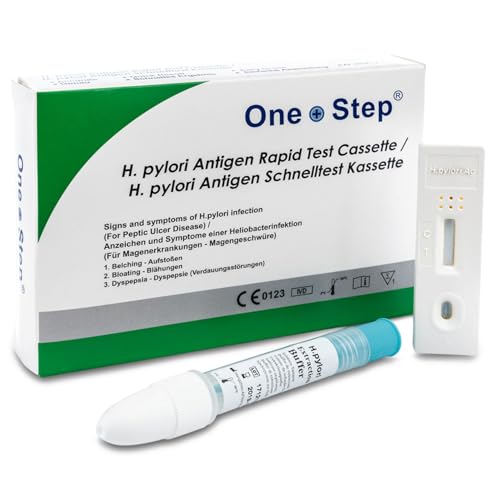Introduction to Helicobacter Tests: What You Need to Know
Understanding Helicobacter Pylori
Helicobacter pylori, often referred to as H. pylori, is a type of bacteria that can inhabit your stomach. Many people have it without any symptoms; however, it can sometimes lead to various digestive issues, including gastritis and ulcers. This is where testing becomes critical. Helicobacter tests are essential for identifying the presence of these bacteria, helping us find the right treatment path. If you’ve been experiencing stomach discomfort, nausea, or other gastrointestinal symptoms, a Helicobacter test can provide clarity.
Why Testing is Important
Testing for H. pylori is particularly important as it can provide insights into chronic stomach issues. By identifying infections early, we can avoid complications and ensure that appropriate treatment is administered. Moreover, understanding your H. pylori status can also influence lifestyle and dietary choices going forward.
Types of Helicobacter Tests: Finding the Right Option for You
Different Testing Methods
There are several types of Helicobacter tests available, each with its own process and advantages. The most common tests include breath tests, blood tests, stool tests, and endoscopy. Breath tests are non-invasive and can quickly identify an H. pylori infection by measuring gases in your breath after consuming a specific solution. Blood tests, while effective at determining past infections, may not be as reliable for current status. Stool tests require a sample, but they are also quite accurate in detecting active infections. Endoscopy is typically reserved for more severe cases but can provide a direct view of the stomach lining to look for inflammation or ulcers.
Choosing the Best Test for Your Situation
When deciding which test to undergo, we should consider factors such as our symptoms, medical history, and the convenience of the testing method. If we’re looking for a quick and easy option, the breath test might be our best bet. For those who have a history of serious symptoms, discussing an endoscopy with a doctor could be the most informative choice.
How to Prepare for Your Helicobacter Test: Easy Steps Before Your Appointment
Preparation Guidelines for Accurate Results
Preparation can vary depending on the type of Helicobacter test we choose. For instance, if we’re scheduled for a breath test, it’s essential to avoid antibiotics, proton pump inhibitors, and bismuth medications for at least two weeks prior to our test day, as these can interfere with accurate results. For blood tests, no specific preparation is typically needed, although it’s always best to consult with our healthcare provider. If we’re undergoing a stool test, collecting a sample as instructed is crucial for the most reliable outcome.
What to Expect on Test Day
On the day of our test, we should arrive with clear instructions and any necessary samples if required. The procedures are generally straightforward and should not cause any discomfort. Engaging with healthcare professionals to clarify any doubts can greatly reduce any pre-test anxiety.
Interpreting Your Helicobacter Test Results: What They Mean for Your Health
Understanding Your Results
Once we receive our Helicobacter test results, understanding what they mean is key to managing our health. If the test is positive, it indicates an active H. pylori infection, which will likely require treatment, typically involving antibiotics and acid-reducing medications. If negative, it generally means that we are not infected, though if symptoms persist, further investigation may be recommended.
Consulting with Your Doctor
After interpreting the results, it’s important to discuss them with our healthcare provider, who can guide us through the next steps. This could involve follow-up testing or starting a treatment regimen if necessary. Having a clear plan will help us manage our symptoms effectively.
Choosing the Best Helicobacter Test: Our Top Recommendations
Recommendation for Testing Methods
For a balance of convenience and accuracy, we recommend opting for a breath test as the first choice for most situations. It is non-invasive, quick, and highly reliable for diagnosing current infections. If we are dealing with more serious digestive issues, we might consider discussing an endoscopy with our healthcare provider, as it offers direct insight into the stomach lining.
Consultation and Follow-up
No matter which test we choose, ensuring that we have a follow-up appointment is crucial. This allows us to review results and establish a plan moving forward. Always prioritising our health means that being proactive about any digestive concerns can lead to timely and effective treatment options.






















